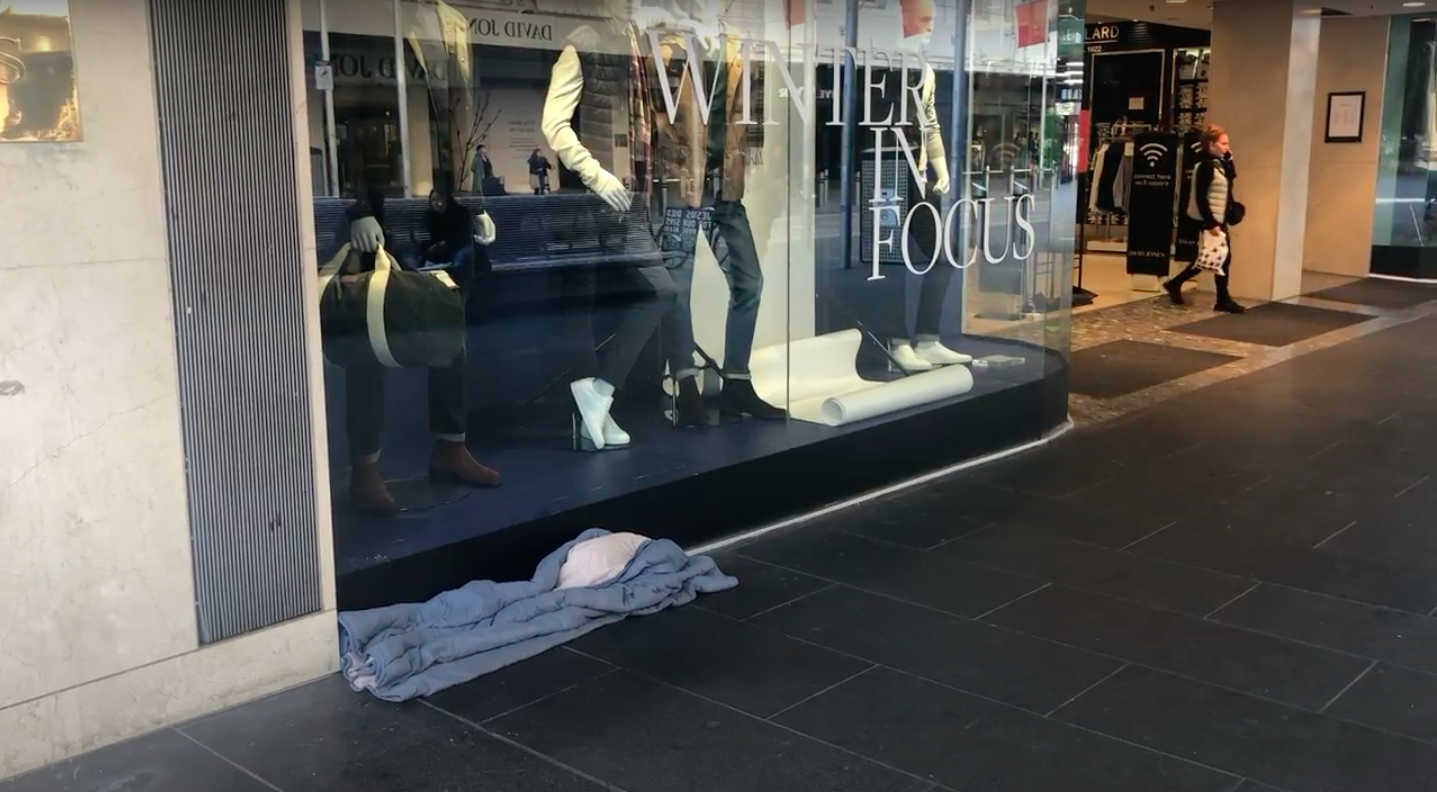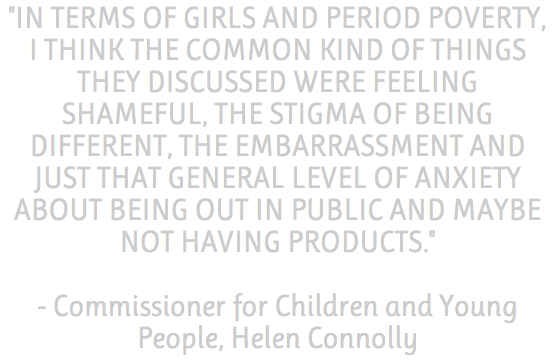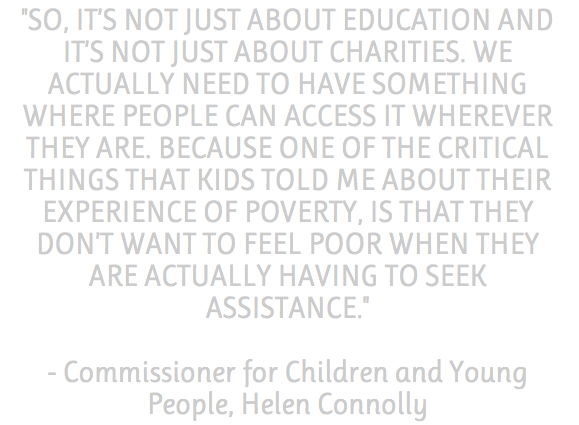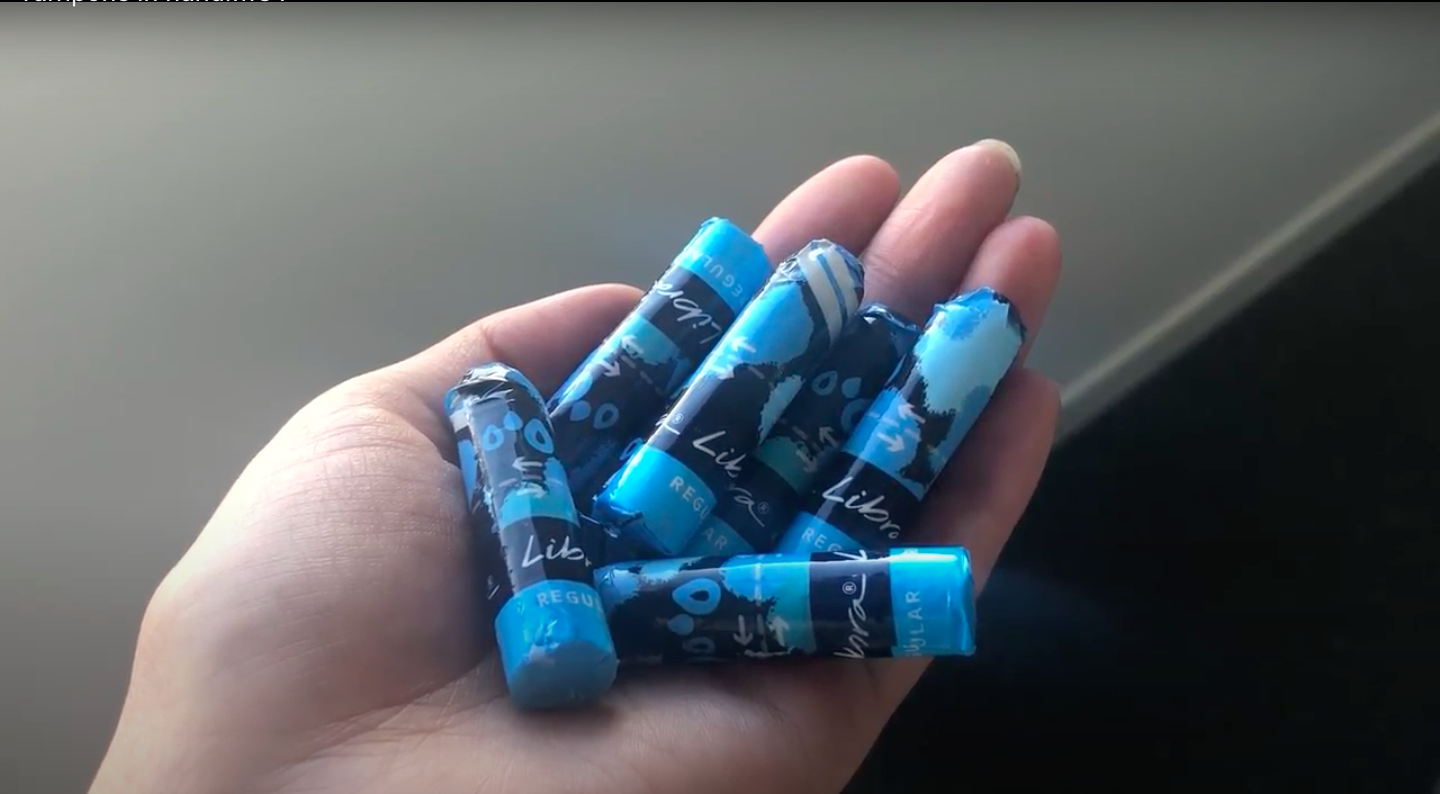PERIOD POVERTY
By Karly Smith and Emma Sullivan

Periods do not discriminate against religion, financial stability or race. Across the world, girls and women* deal with maintaining their menstrual cycles monthly. However, there is a vast difference in ones ability to do so hygienically, due to limited access to basic menstrual products.
With roughly half of the 3 million Australians living under the line, being women, those already in strained environments endure increased pressures to maintain their periods.
When safe and hygienic sanitary items are not available, those experiencing period poverty are forced to resort to inadequate and unhygienic alternatives.
*inclusive of all gender diverse people.
In replacement to tampons
one might use dirty socks.
In replacement to pads
one might use old rags.
One might use plastic bags.
In replacement, one might use leaves or bark.
In replacement, one might free bleed.
In replacement, one is forced to use whatever is available to them, which may result in increased risks of bacterial infections. One may also decide to ration sanitary products by using them for extended amounts of time. Wearing tampons past the recommended safe timeframe puts users at the risk of developing Toxic Shock Syndrome, a potentially fatal condition if left untreated.
Share The Dignity, founded by Rochelle Courtney, is an organisation that helps distribute sanitary products across Australia, aiming to give women the ‘dignity they deserve’.
Each November, handbags full of personal care products are collected as Christmas gifts. Through their partner shelters and charitable organisations, these bags are given to homeless, at-risk and women experiencing domestic violence.
Last year around $56,000 was raised at their annual #Run4Dignity event to help distribute more ‘Pinkboxes.’ These are free pad and tampon vending machines which are placed in schools and public toilets.
Through the month of March and August bins are set up across the country, collecting sanitary item donations. Collection points are located in all Woolworths stores and a number of other nominated businesses found here.
Since the organisations began in 2015, more than 3,000 menstrual cups, 160 free product vending machines and 2.4 million packets of pads and tampons have been directly distributed to charities across Australia.
Despite these large numbers, Rochelle states that it is a ‘bandaid fix’ to an ongoing issue.
“It’s not like we are giving women a warm jacket and it keeps her warm for years… If we did a collection and we did last August where we collected just over 200,000 packets of pads and tampons, which is an amazing number for Australians to give. But it’s really only enough to last 50,000 women for four months.”
Rochelle will continue to try and help make sanitary items more accessible for women across Australia. Using the personal stories shared by those experiencing period poverty as a reminder of why she founded Share The Dignity.
South Australia's Commissioner for children and young People, Helen Connolly, says simply spreading awareness about the issue is not enough.
Commissioner Connolly initiated the petition ‘End Period Poverty, Period’ calling on the government, the feminine hygiene industry, and community stakeholders to work together to end period poverty permanently in South Australia.
A private members bill co-sponsored by South Australian Labor's Irene Pnevmatikos MLC and SA-BEST’s Connie Bonaros, was introduced into State Parliament in November 2019, with the aim of providing free tampons and pads at metropolitan and regional schools through South Australia. The Statutes Amendment (Free Menstrual Hygiene Products Pilot Programme) Bill formed off the back of the Commissioner for Children and Young Peoples’ “Leave No One Behind” report.
“Girls told us about missing school because they couldn’t afford sanitary products,” the report published late last year says.
Commissioner Connolly said that many of these girls do not know how to seek help to access feminine hygiene products.
“A number of girls spoke about the products being available at school, but that the process of accessing them was embarrassing and required quite a lot of self-disclosure, which many were not comfortable to provide.”
If this legislation is passed it would contribute to a decrease in the number of girls missing school during their cycles. With roughly 50+ days of the year spent menstruating, girls are missing valuable education time due to not having the ability to safely manage their periods with the most basic of sanitary items available to them.
The legislation will help to decrease the number of girls missing school during their cycles.
With roughly 50+ days of the year spent menstruating, that is valuable education time missed, due to not having the ability to safely manage their periods with the most basic of sanitary items available to them.


Choosing between purchasing food or sanitary items is a decision one should not have to make. Missing school because you are unable to maintain your period, is a situation that no one should have to face. Using unhygienic items in replacement to menstrual products is something no one should have to endure.

Correction, August 19th 2020: fixed the spelling of Commissioner Connolly and added more context to the 'End Period Poverty, Period' petition.
